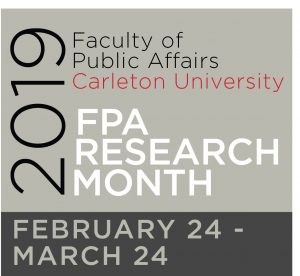Past Event! Note: this event has already taken place.
| When: | Saturday, March 23rd, 2019 — Sunday, March 24th, 2019 |
| Time: | 1:00 pm — 5:30 pm |
| Location: | Richcraft Hall, Second floor conference rooms and atrium |
| Audience: | Anyone, Carleton Community, Current Students, Faculty |
| Cost: | Varies |
| Contact: | Lara Karaian, lara.karaian@carleton.ca, 613-520-2600 ext. 1458 |
Anti-69 is being organized to provide a forum for scholarly and activist work critical of the mythologies and limitations of the 1969 Criminal Code reform.
In June 1969, amidst the rhetoric of the “Just Society,” the White Paper on the extinguishing of Indigenous sovereignty, and the early years of the initiation of state ‘multiculturalism,’ the Canadian government passed an omnibus Criminal Code reform bill. The Omnibus Bill is often celebrated based on the idea that it legalized or entirely decriminalized homosexuality, that Pierre Elliott Trudeau was trying to bring about equality for lesbians and gays, or that the reform established the right of women to access abortion and reproductive rights. None of these claims are true. To be sure, the legislation covered a wide range of changes including: reforms to the ‘homosexual’ offences of ‘gross indecency’ and ‘buggery’ that removed the criminal prohibition from acts committed in ‘private’ and involving only two people aged 21 and over; the decriminalization of limited access to abortion on ‘health’ grounds, if approved by a therapeutic abortion committee; and, in a related bill, the decriminalization of contraceptive information. However, after the reform, police charges against ‘homosexual’ sex increased, access to abortion and reproductive rights continued to be severely restricted, and barriers to accessing birth control continued.
2019 is the 50th anniversary of the Omnibus Bill and a series of public events and installations are being organized to celebrate it. This event offers alternative perspectives and critical responses to the 1969 reform and its implications. Although focused on the Criminal Code, we intend to look at the reform—and the struggles around it—in its broader social, historical, colonial, classed, racialized, gendered and sexualized contexts.
The conference program will be available soon.
This event is part of 2019 FPA Research Month. 